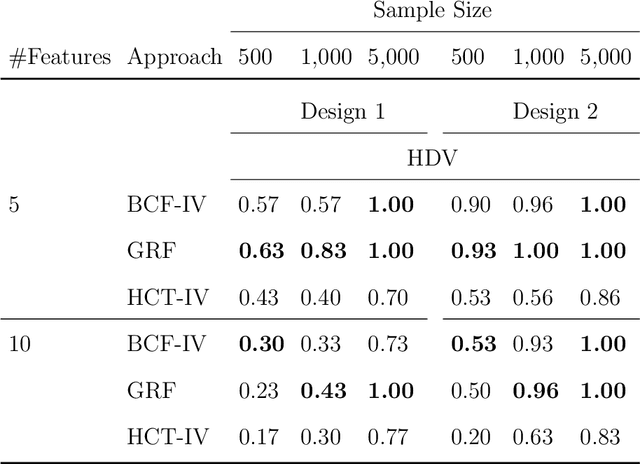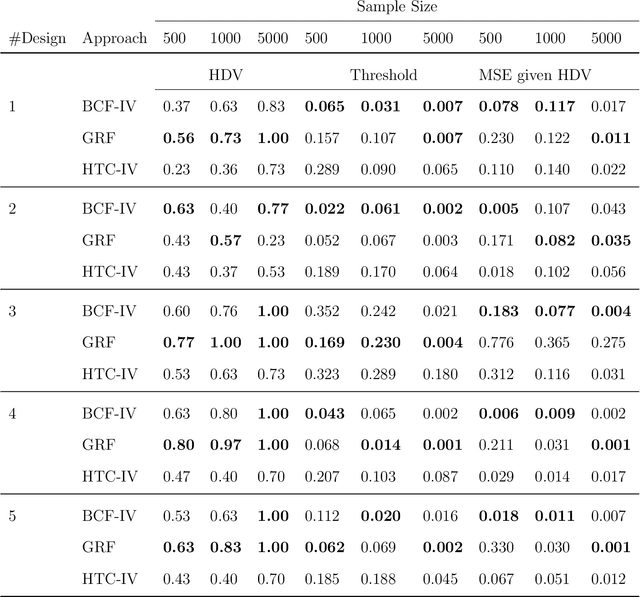Heterogeneous causal effects with imperfect compliance: a novel Bayesian machine learning approach
Paper and Code
May 29, 2019



This paper introduces an innovative Bayesian machine learning algorithm to draw inference on heterogeneous causal effects in the presence of imperfect compliance (e.g., under an irregular assignment mechanism). We show, through Monte Carlo simulations, that the proposed Bayesian Causal Forest with Instrumental Variable (BCF-IV) algorithm outperforms other machine learning techniques tailored for causal inference (namely, Generalized Random Forest and Causal Trees with Instrumental Variable) in estimating the causal effects. Moreover, we show that it converges to an optimal asymptotic performance in discovering the drivers of heterogeneity in a simulated scenario. BCF-IV sheds a light on the heterogeneity of causal effects in instrumental variable scenarios and, in turn, provides the policy-makers with a relevant tool for targeted policies. Its empirical application evaluates the effects of additional funding on students' performances. The results indicate that BCF-IV could be used to enhance the effectiveness of school funding on students' performance by 3.2 to 3.5 times.
 Add to Chrome
Add to Chrome Add to Firefox
Add to Firefox Add to Edge
Add to Edge